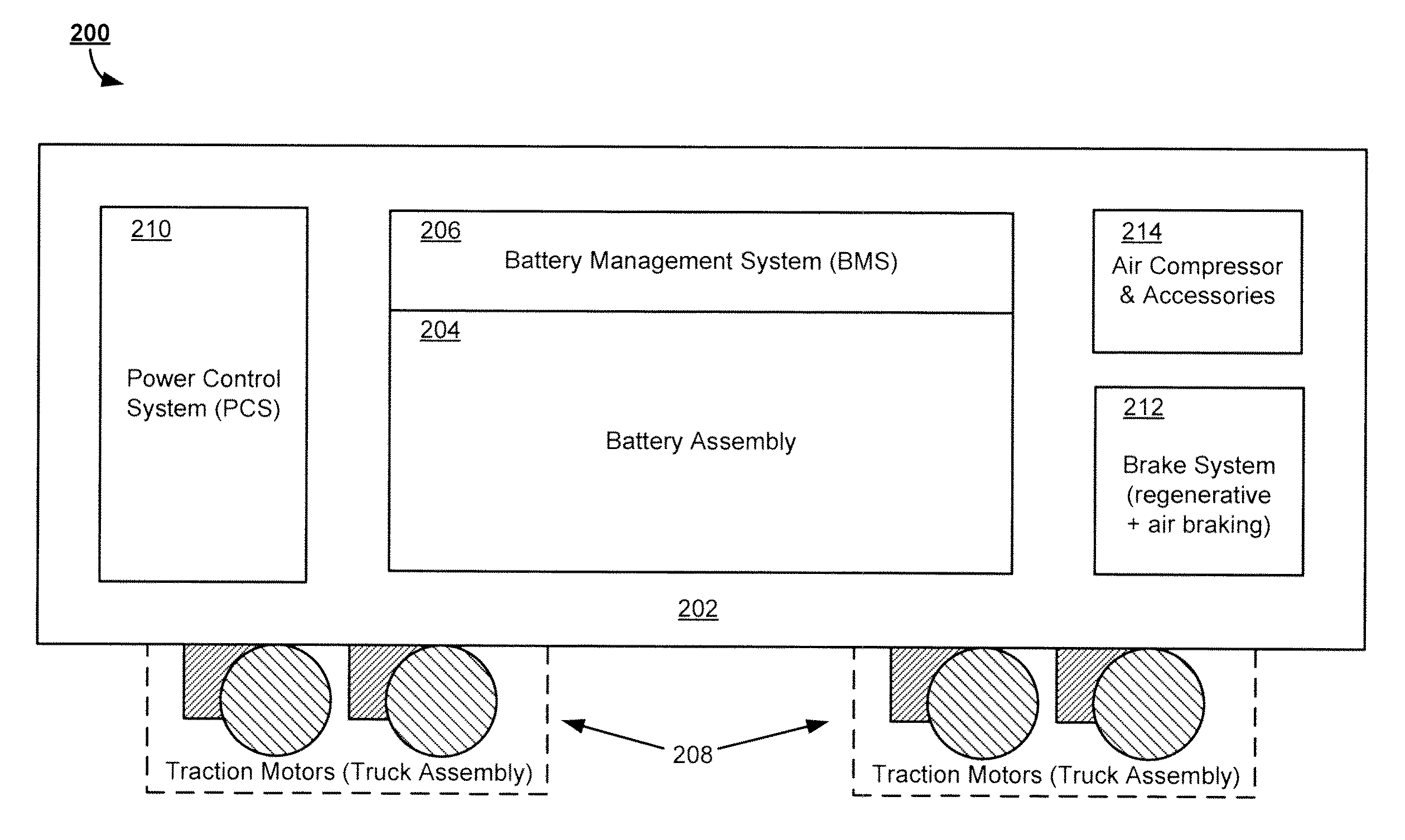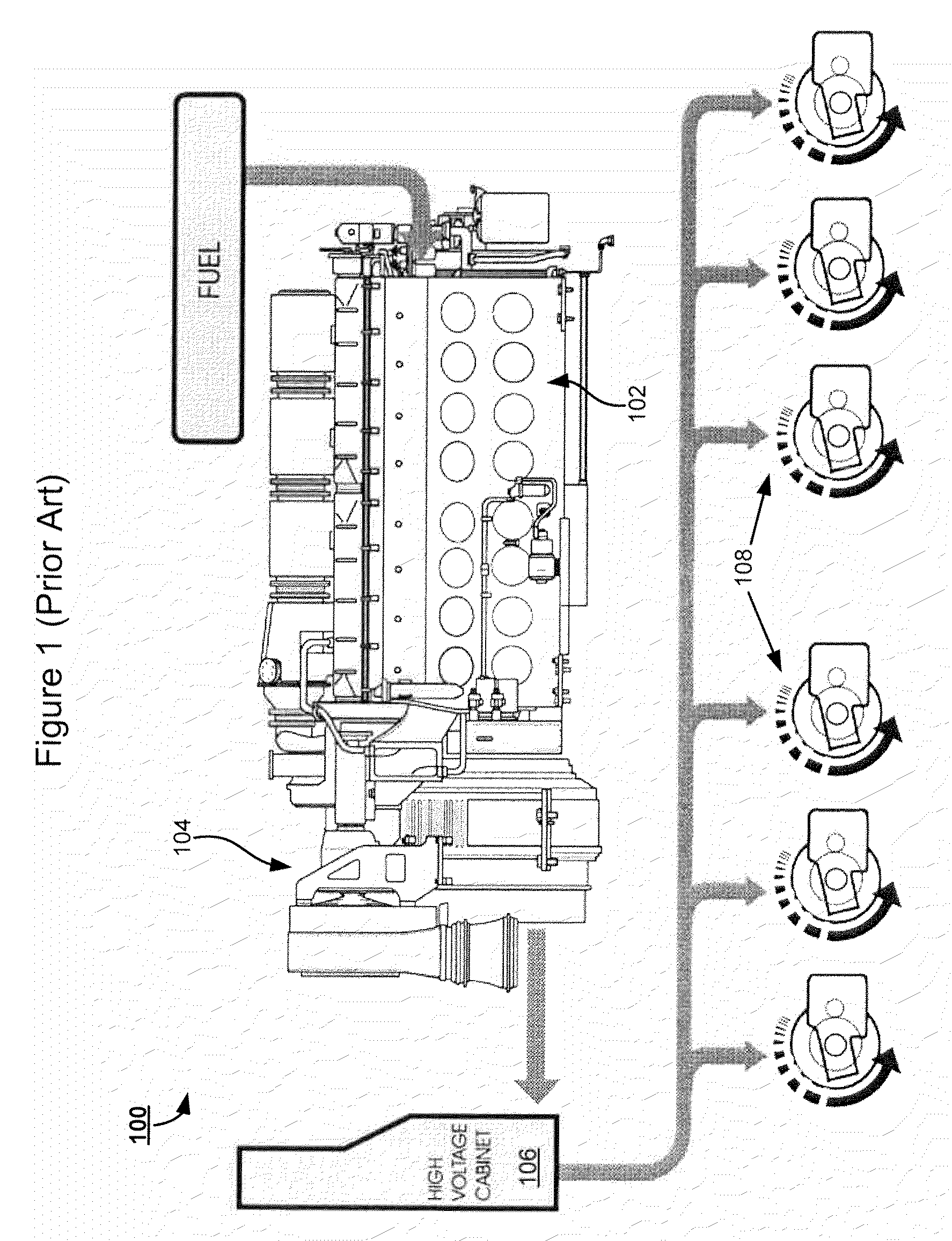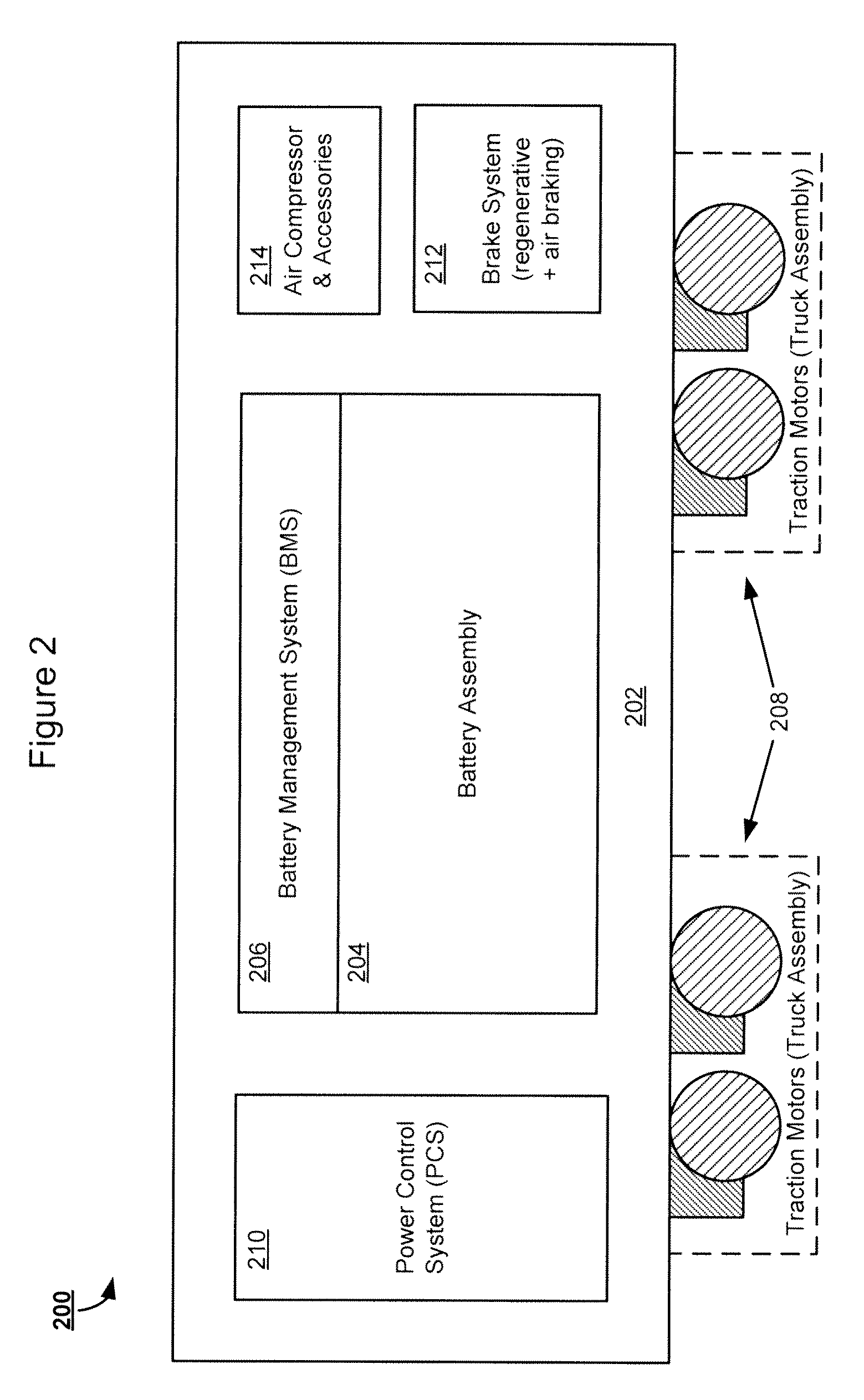Battery-powered all-electric locomotive and related locomotive and train configurations
a technology of all-electric locomotives and locomotives, applied in the direction of electric generator control, motor/generator/converter stoppers, dc motor stoppers, etc., can solve the problem of cooling or air-circulation equipment to equalize battery temperatures
- Summary
- Abstract
- Description
- Claims
- Application Information
AI Technical Summary
Benefits of technology
Problems solved by technology
Method used
Image
Examples
Embodiment Construction
[0024]Embodiments of the present invention provide for a battery-powered, all-electric locomotive that carries no internal combustion engine on board and needs no electric “third rail” or overhead cables for continuous power supply. Instead, embodiments of the all-electric locomotive are powered exclusively by batteries (or other energy-storing cells or capacitors) and can achieve sufficient horsepower and travel range in commercial applications. A number of batteries may be installed on a locomotive platform and coupled to traction motors via a DC bus. A battery management system may closely monitor electrical and thermal conditions of the batteries and provide charge equalization and temperature adjustment as needed. A regenerative braking mechanism may be implemented to recover brake energy to recharge the batteries thereby extending battery usage. Two or more of the all-electric locomotives may also be coupled together and operated in tandem for increased horsepower and extended...
PUM
 Login to View More
Login to View More Abstract
Description
Claims
Application Information
 Login to View More
Login to View More - R&D
- Intellectual Property
- Life Sciences
- Materials
- Tech Scout
- Unparalleled Data Quality
- Higher Quality Content
- 60% Fewer Hallucinations
Browse by: Latest US Patents, China's latest patents, Technical Efficacy Thesaurus, Application Domain, Technology Topic, Popular Technical Reports.
© 2025 PatSnap. All rights reserved.Legal|Privacy policy|Modern Slavery Act Transparency Statement|Sitemap|About US| Contact US: help@patsnap.com



